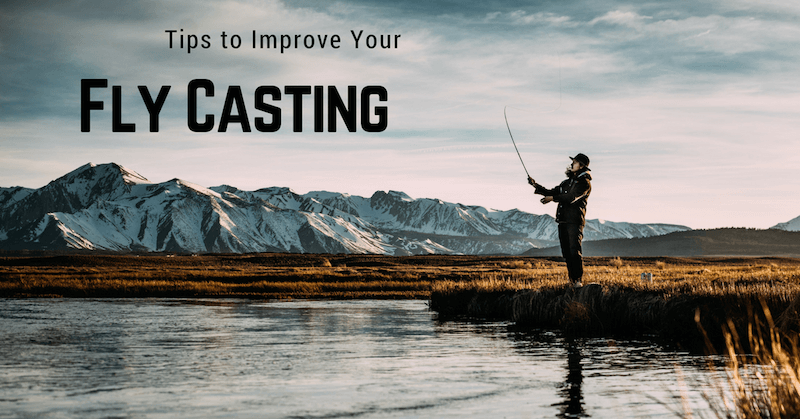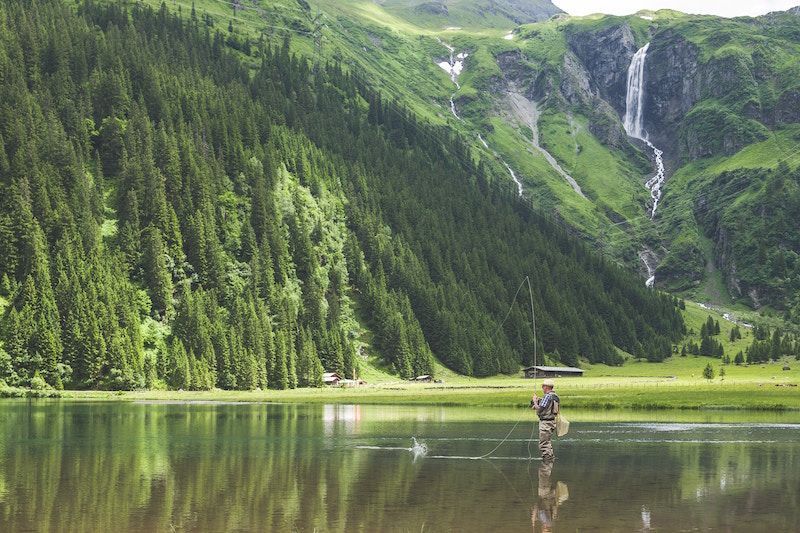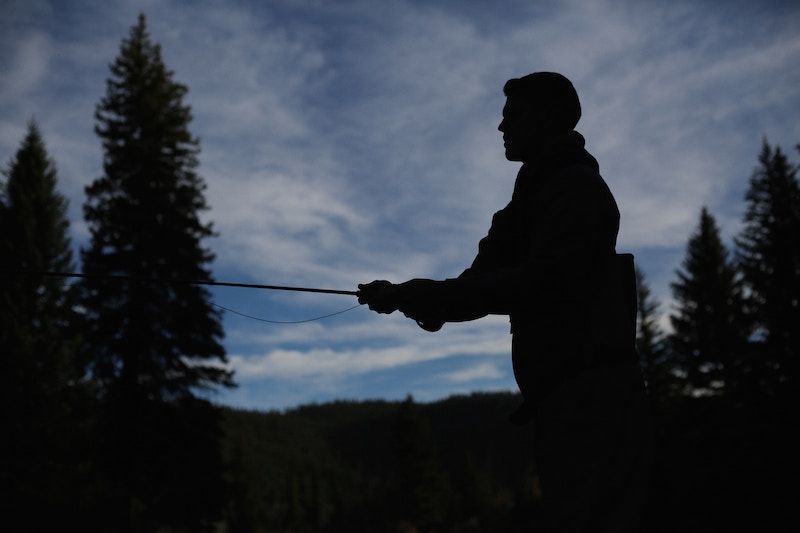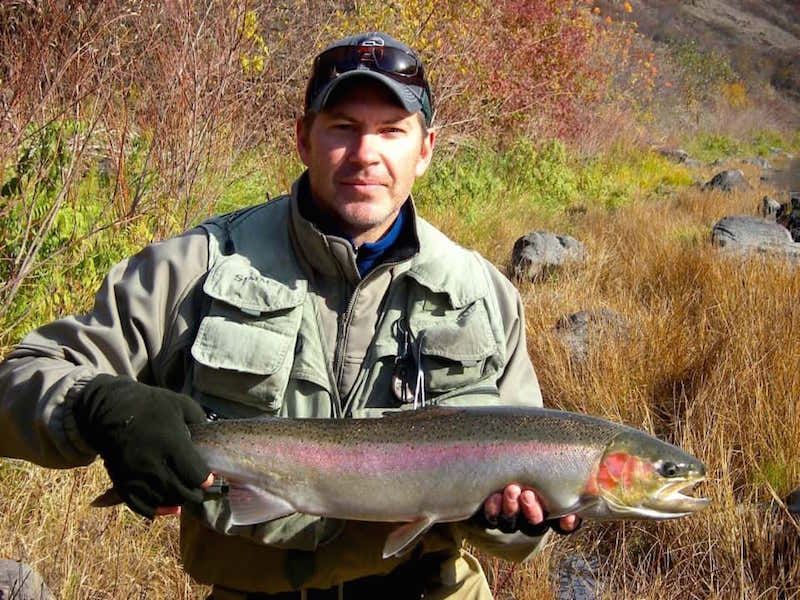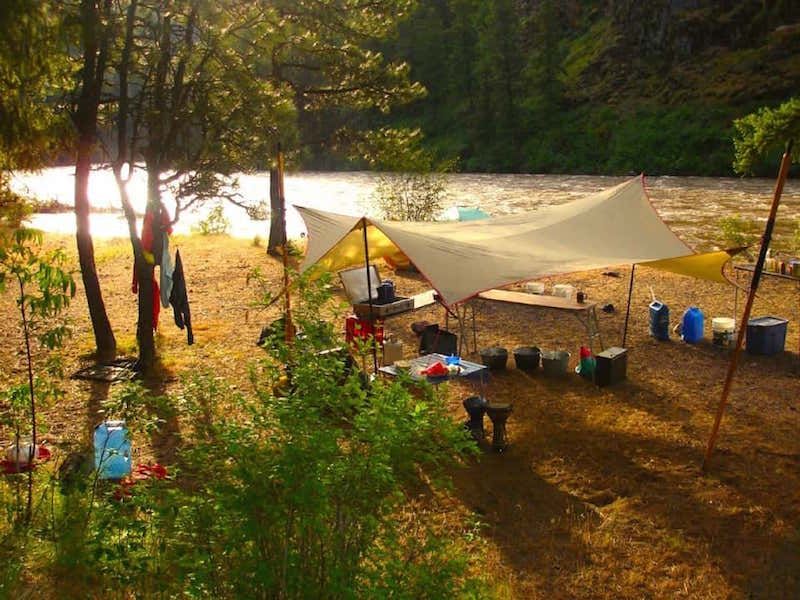8 Tips to Improve Your Fly Casting
Key Takeaways
- Master fly casting fundamentals: Understanding how your rod and fly line work together is crucial for better distance, accuracy, and control during every cast.
- Slow down and stay consistent: Rushing through motions leads to poor technique. Maintain a calm rhythm to improve precision and loop formation.
- Don’t ignore your back cast: A strong, fully extended back cast sets up your forward cast for greater power and accuracy — always look back to check your loop.
- Practice with purpose: Regularly practice in open areas or backyards to build muscle memory, refine your stroke, and strengthen overall casting technique.
- Record and review your casts: Filming your fly casting sessions allows you to spot errors, analyze loop shapes, and make adjustments like a pro angler.
- Seek expert feedback: Joining guided fly fishing trips offers real-world experience and personalized coaching to help you perfect your cast and catch more fish.
After learning how to first cast a fly rod, many anglers don’t think much about the fundamentals of their cast. But just because you know how to cast, you shouldn’t stop thinking about your form.
Even seasoned fisherman should be looking at ways to improve their cast!
In this month’s post, we’ll give some tips on how to improve your fly cast. We’ll also go over some fly casting basics to refresh your memory.
Fly Casting Basics
Fly casting can be an intricate process with a lot of moving pieces.
Below, we’ve outlined some key concepts and terms to know before heading into our tips for better fly fishing casting.
- When casting fly rods, you’re casting the line as opposed to the lure with traditional fishing rods.
- Casting is comprised of “forward casts” and “backwards casts.”
- While casting, you will bend or “load” the rod during the backward cast. This will push the line out further during your forward cast, repeating the process to move your line out further and further.
- The rod-tip path your rod travels over the course of the cast will determine the “loop,” or motion, your fly line makes.
- The “casting stroke” refers to the motion your rod makes in order to create the loop.
- A 10-2 “casting arc,” or angle change of the fly rod, is generally considered best practice.
8 Ways to Improve Your Fly Casting
There are no shortcuts to improving your fly casting technique. At it’s core, improving your cast is centered around getting back to the fundamentals and ensuring you’re not sloppy with your cast (something we are all guilty of at one point or another).
Below, we’ve outlined some ways to ensure your cast stays strong and you don’t lose site of your casting fundamentals.
Understand The Function of the Rod
Remember, your rod is there to do the work.
As noted above, fly rods work differently than traditional fishing poles, which leverage the weight of the lure or bait to cast. Conversely, fly rods leverage the weight of the fly line to cast. Since flies generally weigh almost nothing, the weighted lines used in fly fishing gear is needed to place your fly.
Since the line is so central in the function of the rod, you need to make sure you’re casting correctly for you to both cast the distance necessary and be accurate with your fly placement.
For example, poor fly casting for beginners often comes from rushing the back cast. If you start your forward cast too early, you ruin the transfer of energy.
Take time to understand fly casting techniques and the mechanics of a strong casting set up.
Slow Down
When you are frustrated or stressed, it’s common to speed up whatever you are doing. For instance, it’s common to speak quickly when nervous. Fly casting is no different. Beginner fly casting mistakes usually stem from speeding through motions.
We see this issue with anglers of all skill levels. Generally, it is when an angler is frustrated or in a challenging situation that the issue presents itself.
Not surprisingly, when you move quickly you become less focused on technique. This will decrease the efficiency and effectiveness of your cast, leading to inaccurate and short casts.
If you notice yourself speeding up, breath and try focusing on what you know about fly casting. Try this: strip out 15 feet of line and work solely on practice fly casting over and over again, not letting any new line out. This will get you focused on the fundamentals of your cast, and help you get back on track to good form.
It’s a foundational fly casting practice method even professionals use when they feel off.
Look Back
One common area fishermen struggle with is their back cast.
Since it is not the part of the cast you can see or the one that delivers the fly, it generally takes a back seat to the forward cast in the mind of anglers. This is the wrong way to look at it. Your back cast is just as (if not more) important as it sets up and powers the forward cast. Look over your shoulder while practice casting—but only move your head, not your whole body. Watch your loop unravel before beginning your forward cast.
Unless your back cast is fundamentally strong, you will not place your fly where it needs to go.
Next time you are on the river or practicing your cast, take a look back to make sure the line is unraveling completely before starting your forward cast. It’s important when looking back to make sure to only move your head and not the rest of your body. Moving your body will distort your cast by changing your stroke. Not only will this destroy your cast, but it will not allow you to properly evaluate your back cast.
Practice, Practice, Practice
Fly fishing is just like any other skilled sport – it takes time, dedication, and commitment in order to become great. Practicing frequently will help you reach any goals you set for yourself.
Once a day (or as often as you can) spend 15 minutes out in the yard practicing your casting. Not only will this give you repetitions, helping you perfect your stroke, but it will help your body develop muscle memory for your cast.
Film Yourself Casting
Want to refine your fly casting technique? Film yourself casting. It's one of the best fly casting tips for self-assessment. Seeing yourself in action will help you understand any flaws in your cast.
To start, set up a video camera (or your smartphone) on a tripod in your backyard or other open area. Then, switch between different line lengths and weights. Evaluate your casting fly form and loop shape. This is a great way to spot flaws in your fishing casting techniques.
Once you have taken some video, attach the feed to a larger screen and watch. Take note of what you are doing right and wrong. You can then make adjustments to your cast based on what you see.
Over time this will help you perfect your cast and track your progress.
Want to challenge yourself? Try capturing your double haul fly fishing cast on video and compare it against pro anglers.
Fish More
The only way to catch more fish is by getting out on the river and fishing more. While practicing in an open area will help train your muscle memory and perfect your cast, nothing will compare to getting out onto the river and casting for real.
Unlike in your backyard, fishing out on the river will present you with the reality of casting to catch fish. Practicing in ideal conditions will help prepare you for the trickier situations, but real life experience will help you become the expert you want to be.
Bonus: It’s the best way to practice your elevate cast, roll it back cast, or fly casting roll cast in real-world scenarios. Techniques like these are especially rewarding when fishing along the Snake River in Hells Canyon.
Cast into Slow Moving Water, Particularly When Steelhead Fishing
When out fishing for steelhead (or really any fish in cold rivers), be on the lookout for slow moving, or couch, water. When water is cold fish like to conserve their energy. Slow moving water provides them with a gentler place to sit and wait for food.
A good place in the slow moving water to look is where fast moving water is coming into the couch water.
Go On a Guided Fishing Trip
The best way to improve your cast is by getting feedback from professionals. The best way to do this? Go on a guided trip with experienced fishing guides.
Not only will this give you an opportunity to fish with seasoned pros who will help you catch fish, it will also allow you to fish with anglers who can provide real life feedback on your cast. You'll learn how to cast a fly rod, improve your casting practice, and master techniques like how to cast a tight loop and the double haul fly fishing cast. It’s also a chance to experience how to cast fly fishing rod setups with real-time correction. And if you're wondering how to cast a fly rod far, our guides have the answers.
While your friends may be able to provide feedback while you are a beginner, experienced fishing guides will give you tips to bring even experienced anglers to the next level. You’ll also be around other fisherman who take fishing seriously with whom you can trade tips and gain knowledge.
Guided fishing trip with experienced fishing guides turn anglers into the fishermen's catch they wish to be.
Ready to Bring Your Fishing to the Next Level?
Whether it’s a quiet stretch of the Grande Ronde River or the powerful Hells Canyon rapids, Winding Waters River Expeditions will take you on the adventure of a lifetime. Our guides have been fishing the waters of Eastern Oregon for years and know the rivers inside and out. Join them on a Salmon River rafting adventure for unmatched fishing and casting opportunities. They also just plain know fly fishing, and will be there to help you become an even better fisherman.
All fly fishing trips include:
- Transportation from Joseph, OR
- Full equipment and casting flies
- Professional guides who’ll teach you fly fishing casting techniques
- Meals and camping with gourmet local ingredients
Frequently Asked Questions
Here are some of the most common questions anglers ask about improving their fly casting technique, along with simple, practical answers.
How can I improve my fly casting accuracy?
Improving accuracy starts with mastering your fundamentals—maintain a consistent casting arc, slow down your motion, and ensure your rod tip travels in a straight line. Focus on timing your forward and back casts correctly to transfer energy smoothly. Practicing short, controlled casts helps build precision and confidence over time.
Why is my fly cast not going far enough?
Your cast may lack distance if you’re rushing the back cast or not loading the rod properly. Let the line fully extend behind you before starting the forward cast. Keep your movements smooth and deliberate, allowing the rod to do the work. Proper timing and a firm stop on both back and forward casts improve distance dramatically.
What’s the most common mistake in fly casting?
One of the most common mistakes is casting too quickly. When you rush your cast, you lose control of your timing and rod load, which leads to weak loops and poor accuracy. Take your time, breathe, and focus on smooth, steady motions. Slowing down often leads to cleaner loops and more consistent casts.
How can I fix a poor back cast?
Your back cast sets up your forward cast, so make sure it fully unrolls behind you before moving forward. Try watching your back cast by looking over your shoulder—without turning your body—to ensure your loop is tight and straight. This simple check can quickly reveal timing issues and improve your overall casting rhythm.
How often should I practice fly casting?
Consistent practice is key. Spending just 15 minutes a day casting in your yard can make a huge difference. Focus on short, precise casts rather than long-distance throws. Frequent repetition helps develop muscle memory, refine technique, and keep your casting form sharp for when you hit the water.
How can filming my cast help improve it?
Recording yourself casting allows you to see what you can’t feel—such as loop shape, timing, or wrist movement. Watching your footage helps identify flaws and measure progress. Try filming from different angles with varying line lengths. Comparing your form to professional casters can also help you visualize ideal mechanics.
What role does the back cast play in fly fishing?
The back cast is the foundation of your forward cast. It stores the energy that propels your fly line forward. A weak or incomplete back cast results in poor accuracy and limited distance. By letting your line fully extend behind you and keeping a smooth motion, you’ll create tighter loops and more powerful forward casts.
Why should I go on a guided fishing trip?
A guided trip pairs you with experienced anglers who can offer personalized feedback and correct your technique in real time. Guides help refine your cast, teach advanced methods like the double haul, and expose you to varied fishing conditions. It’s one of the fastest ways to elevate your skills and gain confidence on the water.
How does fishing more often improve your casting?
The more time you spend on the water, the more natural casting becomes. Real-world conditions—wind, current, and fish behavior—force you to adapt and refine your technique. Regular fishing sharpens your instincts and timing far beyond what practice alone can achieve.
What is the best water to practice fly casting in?
Slow-moving or “couch” water is ideal, especially when fishing for steelhead. These calmer areas help you observe your cast and fly placement more clearly. They also tend to hold fish conserving energy, giving you more opportunities to test your accuracy and presentation.
Improve your fly fish casting tips and explore the rivers with seasoned pros. Discover why adventurers love Winding Waters! Check out our Google Business Profile Reviews to hear what guests say about their unforgettable whitewater rafting trips. Looking for a more personalized fishing experience? Our private rafting charters offer tailor-made trips for anglers of all levels.

